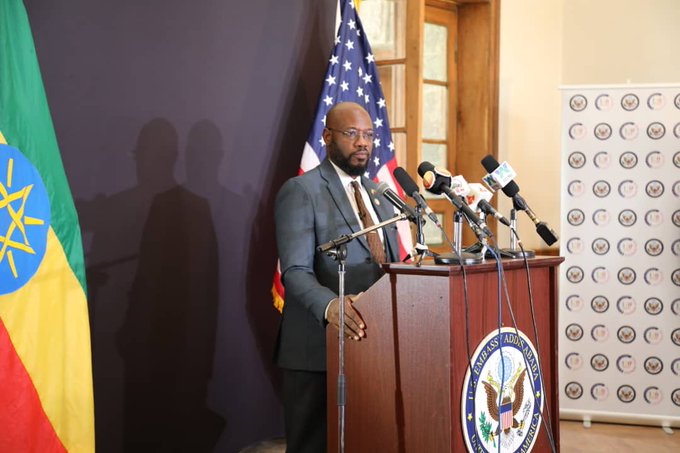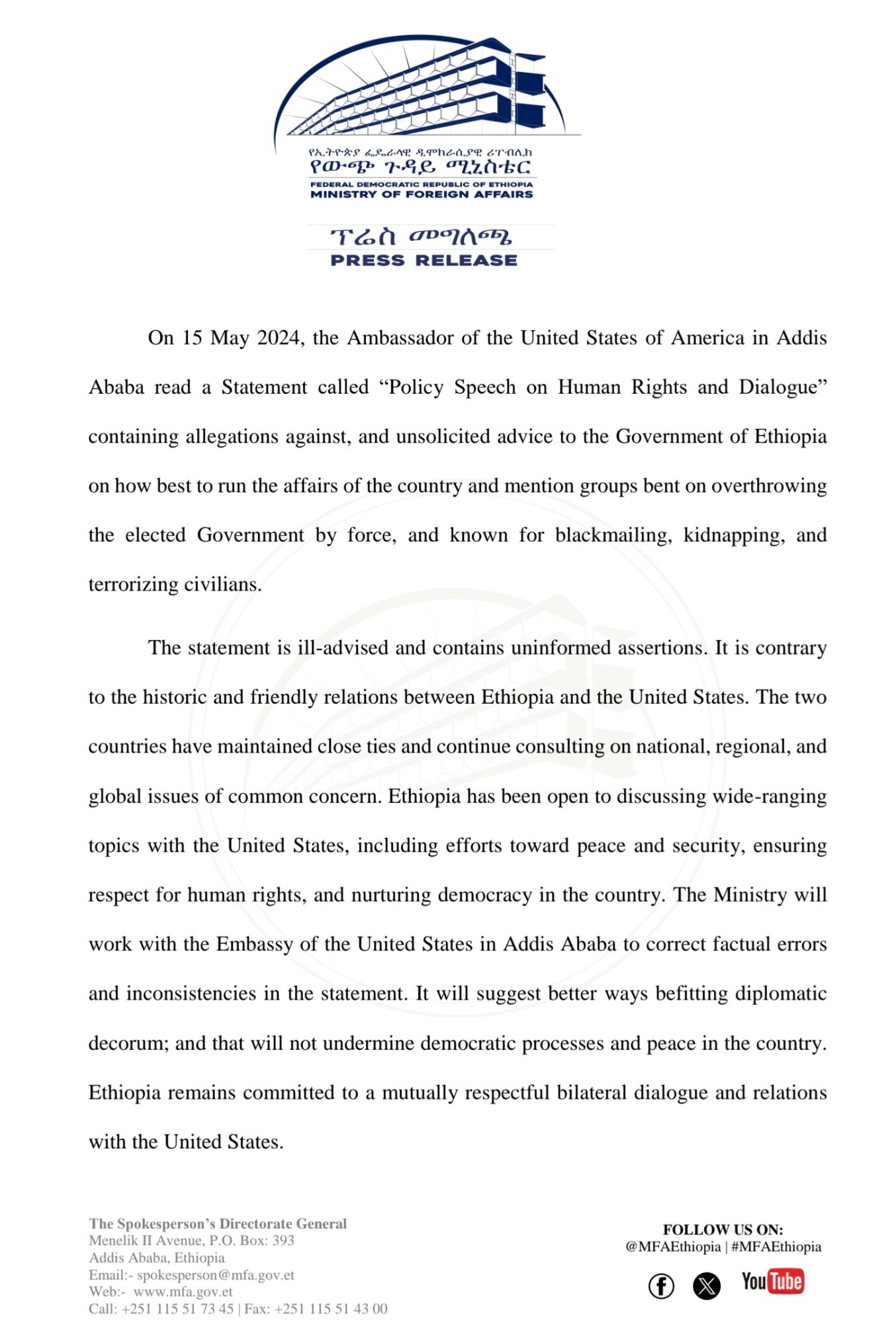US envoy urges ceasefire, dialogue in Ethiopia conflict, Abiy Ahmed and OLA Response
In a major policy address yesterday, United States Ambassador to Ethiopia Ervin J. Massinga called on all parties involved in the ongoing conflict to pursue "a temporary nationwide ceasefire" and inclusive political dialogue.

Massinga addressed the Oromo Liberation Army (OLA) in Oromia, stating, "You made a genuine effort to reach a deal at the negotiating table in Dar es Salaam. Don't give up. Make the effort to rebuild trust and seek the peace for which there is overwhelming public support.
"
Regarding the Fano militants in Amhara, the ambassador said, "Your rejection of dialogue does not serve you well. As in other parts of Ethiopia, it is innocent civilians who are suffering at the result of the continued fighting in battles.
"
Massinga urged the Tigray People's Liberation Front (TPLF) to resolve issues like the return of internally displaced persons through "an inclusive, orderly, and dignified process" rather than attempting to retake territory by force.
The ambassador stated to the Ethiopian government, "The country has far more to gain through peace than on the battlefield. A security-focused approach will not resolve complex political issues." He suggested releasing key political figures could facilitate productive political dialogue.
Ethiopia Govt Opposed the Ambassador Speech .

Oromo Liberation Army OLF-OLA answer


